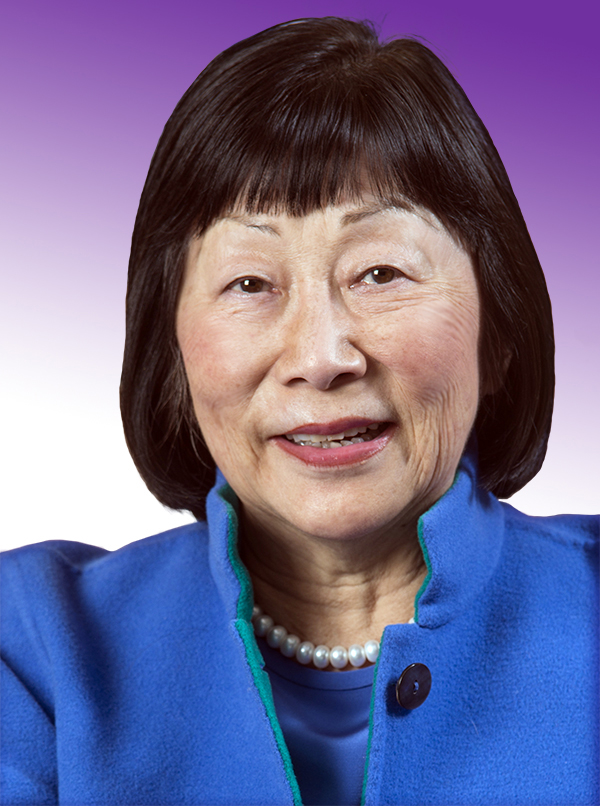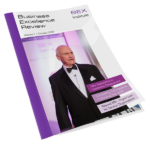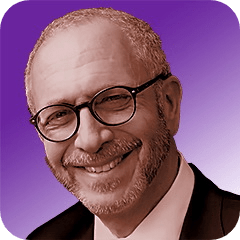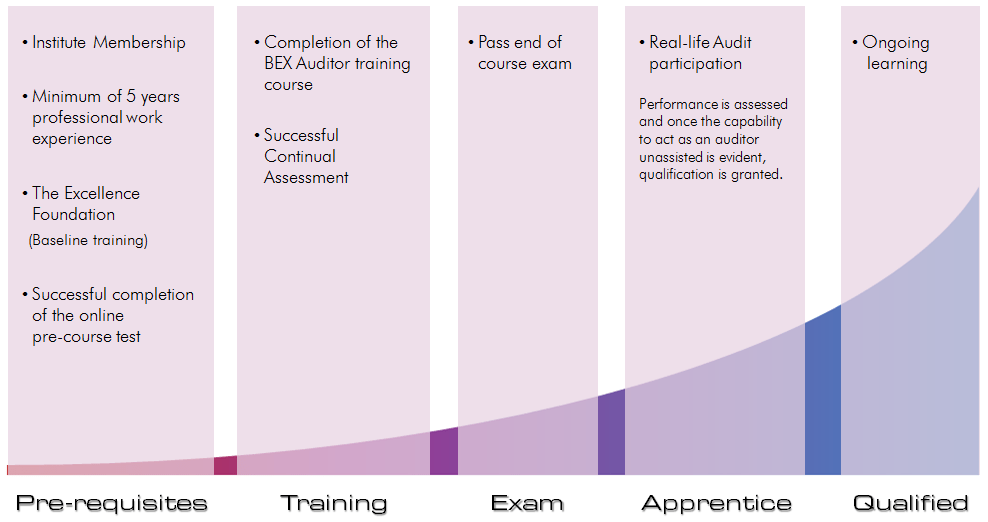Excellence Hall of Fame – Julia Chang Bloch

Nominated by: Eileen McDonnell
Seconded by: John Bourke and Heidi Fuerst
“Always with the highest professional standards, Julia Chang Bloch served first in the Peace Corps, then in high-level positions at A.I.D., U.S.I.A., and the U.S. State Department, and in high-level staff positions with the United States Senate. Her U.S. Government service culminated in her appointment as U.S. Ambassador Extraordinary and Plenipotentiary to the Kingdom of Nepal. Ambassador Bloch later rendered extraordinary service in the private sector (…) and with important philanthropic and educational organizations in the U.S. and China (…) My sincere congratulations to Julia on her induction to the Excellence Hall of Fame.”
Rev. Dr. Wesley S. Williams President & Co-Chairman Lockhart Companies
“Julia has excelled in everything she has set out to achieve. She has demonstrated her leadership and business savvy in all sectors. Public, private, and non-profit. Her impressive life story and journey to global success have led to many accolades as a businesswoman and humanitarian. Her accomplishments are nothing short of inspirational. Her impact has been far-reaching, including her tenure as an ambassador of the United States to Nepal and her continued work with the United States-China Education Fund, where she works to promote U.S. China relations with education and exchange.”
Eileen McDonnell Chairman & Chief Executive Officer, Penn Mutual
Bio
At a young age, Julia learned from her father that one can always be better. Her career has reflected this belief as she has continually challenged herself, pushing boundaries, creating new possibilities and leading the way for others. Born in Shandong province – a part of China that lies between Beijing and Shanghai – Julia moved to the United States with her family when she was nine and spent the rest of her childhood living in San Francisco.
Just over a year after arriving in California, Julia was elected president of her sixth-grade class which was quite an accomplishment given that it was rare for any girl to get elected at the time, let alone an ethnic Chinese girl – not to mention one who couldn’t speak English when she first arrived and had to start schooling in a class for children with intellectual disabilities.
Julia did well academically and, in 1964 she earned a Bachelor’s Degree in Communications and Public Policy from the University of California, Berkley, and then joined the Peace Corps going to work teaching English as a volunteer in Sabah, Malaysia.
Being both Chinese and American and having spent much of her childhood in China, as a young adult Julia had to contend with questions of self-identity. Her time in Malaysia helped her reconcile her struggle and realize that instead of needing to think of herself as being Chinese or American, she was a unique combination of the two and could draw on the best of what both had to offer.
In 1966, Julia returned to the U.S. and went to study at Harvard on a Ford scholarship. The following year she was awarded a Master’s Degree in Government and East Asian Studies. On graduation, she had to contend with gender discrimination when, unlike her Chinese-speaking male classmates, she wasn’t flown to Washington D.C. for job interviews and most job offers were for clerical work. She went to work for the Peace Corps as a Training and, then, Evaluation Officer.
While attending Harvard University Graduate School she met her husband, Stuart Marshall Bloch, who was a student at the law school. They will celebrate their 50th anniversary in 2018.
In 1971, her hunt for a more meaningful job, going office to office on Capitol Hill, paid off and, aged 29, she was made a professional Staff Member on the Senate Select Committee on Nutrition and Human Needs. In this role, she handled both domestic and international issues. She represented the U.S. at the UN World Conference on Women, which was held in Mexico in 1975. In 1976, she became the Committee’s Chief Minority Counsel.
Julia was appointed Deputy Director of the Office of African Affairs of the U.S. Information Agency in 1977 where she worked until 1980. During her time there she was awarded the Hubert Humphrey Award for International Service by the U.S. Mission to the United Nations and the Peace Corps.
In 1980, Julia was invited to take a Fellowship by the Institute of Politics at Harvard University’s Kennedy School of Government, an honor usually reserved for prominent politicians. She spent a semester there running a Study Group on American Foreign Policy and Domestic Politics before joining the U.S. Agency for International Development as a Special Assistant and then, a number of months later, being appointed Assistant Administrator of its Food for Peace and Voluntary Assistance Bureau by the President of the United States. In that role, Julia administered the world’s largest food aid program serving 80 countries with a budget in excess of 2 billion dollars.
In 1986, Julia was awarded an Honorary Doctorate of Humane Letters from Northeastern University (Boston, Massachusetts). The following year, the Organization of Chinese American Women named her “Woman of the Year” and she also received the “Leader for Peace” Award from the Peace Corps as well as the Agency for International Development’s “Humanitarian Service Award”.
In 1987, Julia was made Assistant Administrator of the U.S. Agency for International Development’s Asia and Near East Bureau, managing a budget of $3.8 billion. Then, in 1988, she returned to Harvard University to work on research in its Centre for International Affairs’ US-Japan Relations Program. In the same year, Julia and her husband Stuart established the F.Y. Chang Foundation – named after Harvard’s first Chinese graduate, Julia’s father Chang Fu Yun – to help Chinese students attend Harvard Law School.
In 1989, Julia became the first Asian American in history to serve as a U.S. Ambassador when she was appointed to be the Ambassador of the United States to Nepal. Shortly after taking up her post in Kathmandu, there was a revolution in Nepal as the people wanted to end the monarchy. Julia worked hard to facilitate as smooth a transition as possible – promoting dialogue between both sides and working the system in Washington to get the attention needed to provide aid to establish a new constitution and legal system – and she played an important role in the creation of a democratic Nepal without humiliating the king.
After serving her four-year term, she retired from public service in 1993 and entered the private sector, joining Bank of America as Group Executive Vice President of Corporate Relations. In 1994 Julia was appointed to the board of America West Airlines after it filed for Chapter 11 and helped oversee its return to health (in 2005 American West took over US Airways and in 2015 it merged with American Airlines).
In 1995, she founded the Women’s Foreign Policy Group with Patricia Ellis who still serves as its President. The following year the U.S. National Conference for Community and Justice awarded Julia its Brotherhood and Sisterhood Award and Julia also left Bank of America to move into philanthropy, taking on the role of President and CEO of the United States-Japan Foundation where she served for two years.
In 1998, Julia resigned from the board of America West Airlines. In the same year, Peking University – China’s oldest modern university, consistently ranked in the top 50 universities worldwide – asked her to rebuild its American Studies Center. She became Executive Vice Chairman of its American Studies Center and a Visiting Professor at the Institute for International Relations. In 2001, she also joined Fudan University in Shanghai as a Visiting Professor and Distinguished Adviser of International Relations and Public Affairs.
In 2004, Julia established the United States-China Education Trust, a non-profit organization working to promote US-China relations through education and exchange. She has served as its President since. In 2011, NAFSA, the Association of International Educators awarded her the prestigious Cassandra Pyle Award for Leadership and Collaboration in International Education and Exchange.
Julia is a Fellow of the U.S. National Academy of Public Administration, an advisor to the Hong Kong Baptist University Department of Journalism’s Pulitzer Prize Winners Workshop, and Senior Advisor to the Pangoal Institution, a Beijing think tank. She serves on a number of non-profit boards including as a Lifetime Director of the Atlantic Council, the Washington DC World Affairs Council Global Advisory Council, the board of Regents of the Fund for American Studies, the Boards of the Council of American Ambassadors and the Foreign Policy Association. She is also an Emeritus Director of the American Himalayan Foundation (which works to improve healthcare, education and prevent human trafficking), a retired trustee of the Penn Mutual Board, on which she served from 1997 until 2013, and has served on the boards of the International Center for Research on Women and the Global Heritage Fund.
Julia and her husband, Stuart, are sponsors of the Zenith Community Arts Foundation and significant contributors to the University of Miami. They have also established an “FY Chang Scholars Program at Harvard Law School” in honor of her father.
Julia is listed in World’s Who’s Who and in Donna Langston’s A to Z of American Women Leaders and Activists – she is one of only 147 women from U.S. history to make the list – and she was selected in 2011 by the American magazine Women of Wealth as “one of the nation’s top women mentoring leaders”.















